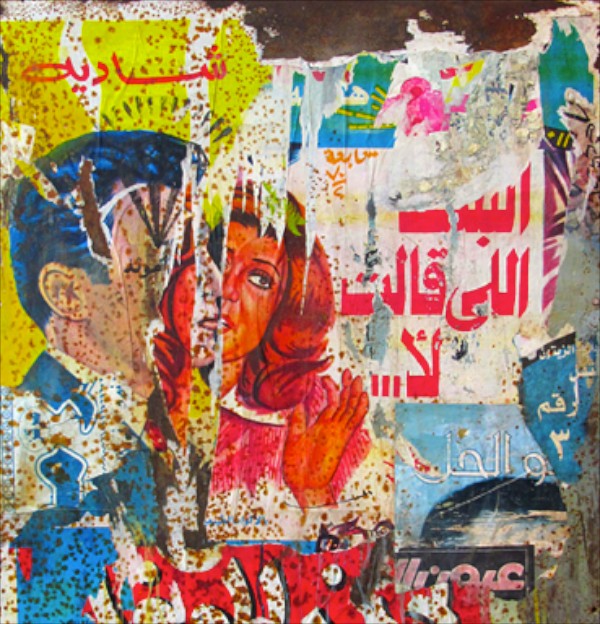By Chitra Kalyani
He is holding something small up in his hand, “Look at the 70s.” Kareem Lotfy is describing what he does when he “dubs” music; essentially he is simply playing with a sound that he likes from another time. A request to describe his music launches him on a Wikipedia journey through music history, accompanied by an astute analysis.
“Commercializing,” says Lotfy, marks “the fall of the artist,” citing Michael Jackson and Eminem as cases in point that were “hunted” once they stepped into a style or in the pop scene. To escape the fall, Lotfy recommends “flying over the radar.”
Lotfy has a few tricks up his sleeve for staying incognito. It’s not just that he has “cut his hair” and discarded “the hippie look.” Explaining it away as a phase, “I grew up,” says the 27-year old artist, who keeps a low profile.
Lotfy has only played at two concerts in Egypt so far: the first was as DJ at a psychedelic party in Gouna (his “Goa phase” is complete with a hippie look).
Subsequently, he hooked up with Mahmoud Refat, founder of record company 100COPIES MUSIC to produce his first album, “Dirty Zeyda,” in 2008. It was at Refat’s 100LIVE Electronic Music Festival in 2009 that he played next.
Despite having played since the age of 13 — maths would make that 14 years — last week at the D_CAF Festival marked Lotfy’s third public act. Again it was Refat, who is also D_CAF music director and whom Lotfy fondly calls “big brother,” that brought him to the stage.
On stage, too, his physical presence is muted. He sits behind a table, surrounded by computers and software that he uses to form an electronic musical set. The lights are dimmed, and you may not even see him.
Another way that Lotfy avoids being pinned is by refusing to be labelled. Instead, he makes his own label: Astropical Dub. “I was just playing with words,” he says, “astro” and “tropical.” He avoids having a style, and when he records music, he keeps his tracks short, restricted to two/three minutes.
Explaining “Astropical” further, Lotfy opines, “Internet was given to people in the 90s.” Insisting on being precise — “Yes it was given, because they had it before,” he says.
The digital age thus has the attribute of being “astropical” as it allows time travel to recreate a “fake palm tree” and “tropical” experience. “Music got nostalgic because the internet allowed it.”
The less fancy word “dub” launches Lotfy into an equally philosophical discussion. “Dub” does not refer to the more modern electronic dance called “dubstep,” rather; Lotfy is referring to the “early DJ techniques” of “mixing low-quality tracks.”
He draws much inspiration from the time when the rebellious form of jazz dubbed itself into reggae. When it first began, this trend of dubbing jazz and reggae was limited to radio and small-scale. Going commercial marked the cultural suicide of black music.
“What’s killing culture is commercializing it,” says the sound artist who “crops this time” of reggae and jazz, looking for that “vintage” moment, holds it up to the light and says, “Look! That is the 70s.”
Which is why Lotfy does not call his music his own. “How do you describe something as your ‘own tracks?'” he asks, “I’m just sharing something similar to something I heard before.”
For the most part, he is playing DJ, and on this night, he is not presenting any original tracks.
Nevertheless, as intended, the music is hard to pin down. True enough, it contains broad brushstrokes of African rhythms and reggae music, but more often than not the sound is distorted and tweaked to the extent that it is hard to find a pattern, let alone a melody. Instead what you once glean is the semblance of a jazz song distorted by recurring arhythmical beats and sounds that compete with each other. Without falling into any form, the music too floats “over the radar.”
Asked whom he played for, Lotfy again says there is no way to categorize the music or the audience. Looking five years into the future, he says categories will soon cease to exist, since everything blends into another.
Pointing to the ambient music of “Muslimgauze” that happened to be playing on in the background, he says: “That’s a British producer, playing Indian music, with Muslim background, and that is now part of my identity.”
Music — like modern day nationalities, or identities — now challenges narrow categorizations in an increasingly fluid world. Why call it a rose when you can call it by so many other names?



